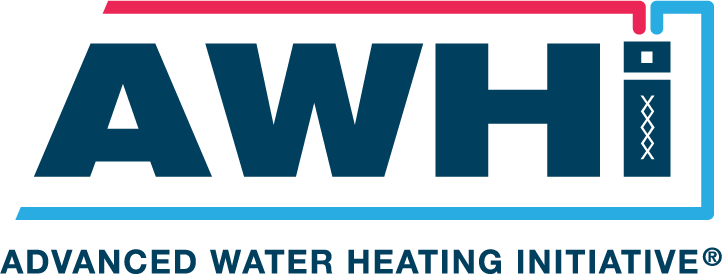CHPWH Project Spotlight
Photo credit: Ecotope
Bayview Towers demonstrates CHPWH technology, inclusion, environmental stewardship, and energy savings
A new demonstration project of a Mitsubishi Commercial Heat Pump Water Heater (CHPWH) system is underway at the Seattle Housing Authority’s (SHA) 100-unit Bayview Tower. The one-year field study is assessing opportunities to supply hot water using only one-third of the energy of a conventional system—a 59% reduction, from 230,000 kWh/year to 95,000 kWh/year—and provide demand flexibility to better balance peak demand times on the electricity grid.
The Origin Hot Water System was assembled on a skid in North Dakota by Steffes, shipped to Seattle, and lifted into place—eliminating custom engineering and on site construction. This fully “plug-and-play” system represents a transition of the industry from selling heat pumps to selling water heating systems. This approach reduces overall costs by simplifying and standardizing installations, reduces errors with commissioning, and results in significantly improved performance from the older systems it replaced. Reduced costs allow for investments in other property updates to efficiently meet residents’ needs.
The project’s engineering firm, Ecotope, installed a redundant heat pump system to the current electric resistance equipment to test the new product. “The test of the new Mitsubishi product offers the chance for us to continue to provide hot water for our tenants while increasing efficiency two to four times over what we would see with a conventional product,” said Bobby Coleman, administrator of the Environmental Stewardship and Sustainability Division at SHA. “We don’t always have the luxury of creating a parallel system to try out new technology. We are excited about the opportunity and the potential for it to be a scalable model for our other properties,” he said. The Authority’s mission is to provide safe, decent, and affordable housing with a commitment of environmental stewardship.
These CHPWHs use low-global warming potential (GWP) natural refrigerants, the best option for this type of technology currently available. Low-GWP refrigerant ensures minimal impact to the environment if the refrigerant leaks. They also work in all U.S. climate zones and are the first product to integrate demand response controls that can shift energy use when needed during peak grid times.
Mitsubishi received support to determine how to take their product developed in Asia and adapt it to the U.S. market with funding from the Bonneville Power Administration’s (BPA) Emerging Energy Efficient Technologies program. Other partners on the installation include Seattle Housing Authority and the Seattle Office of Housing. Technical support came from Ecotope, Skycentrics, and Steffes. Installing contractors were Burton (GC), Vital Mechanical, and Seahurst Electrical. The product’s performance will continue to be monitored for the first six-months to a year onsite at Bayview Tower in order to verify system performance.
Seattle Housing Authority sees this technology as a key solution for improving energy efficiency for its 38,000 residents across 8,500 units, as well as for meeting the city’s aggressive decarbonization goals. But, Emily Alvarado, Director of the Seattle Office of Housing sees Bayview Tower as the start of something even bigger. New amendments to Seattle’s energy code will promote widespread adoption of advanced water heating technologies in all new construction. “Bold policy choices, like our new energy code, are essential to meaningful climate action,” said Alvarado.
Please contact Keshmira McVey, AWHI Commercial HPWH lead, if you are interested in learning more about CHPWH activities and if you would like to discuss partnership opportunities.

